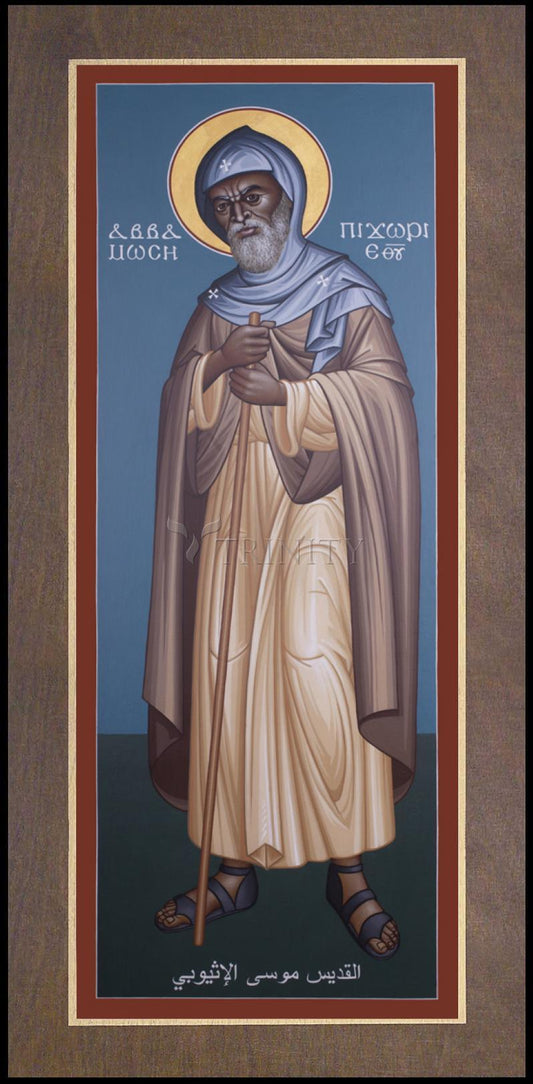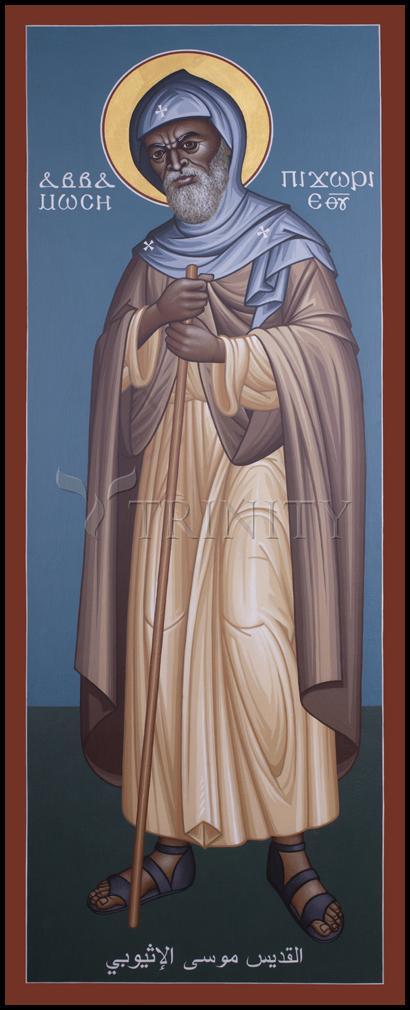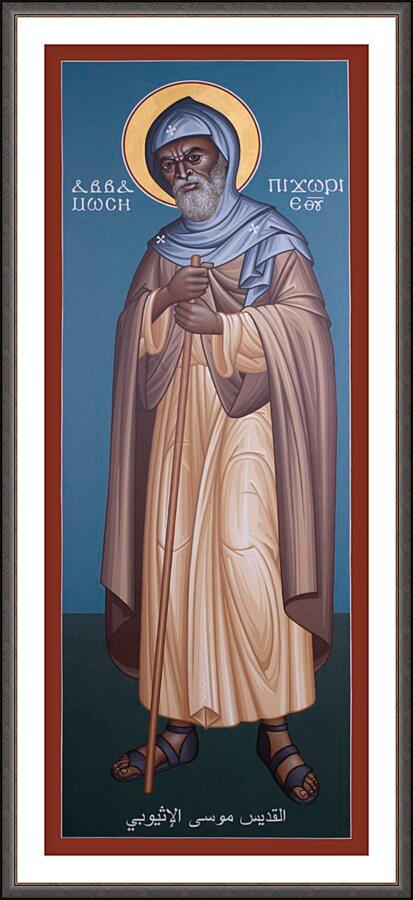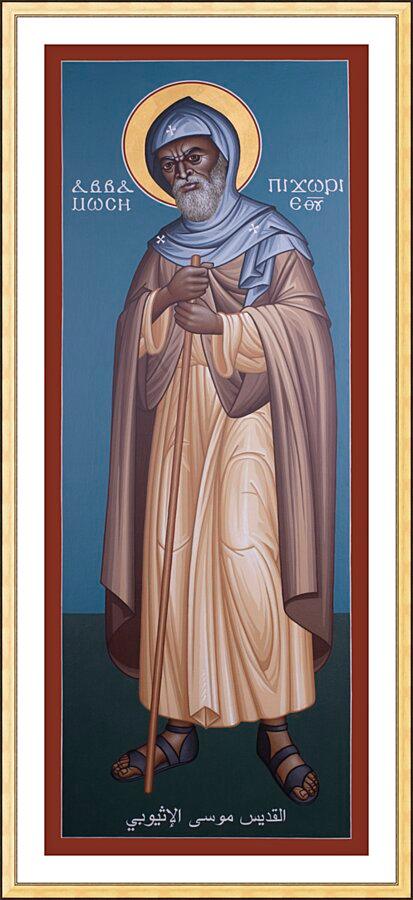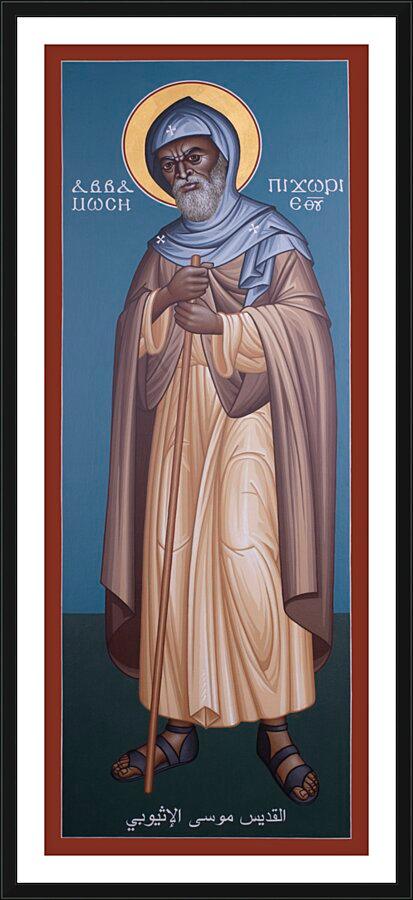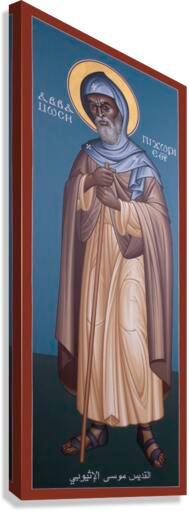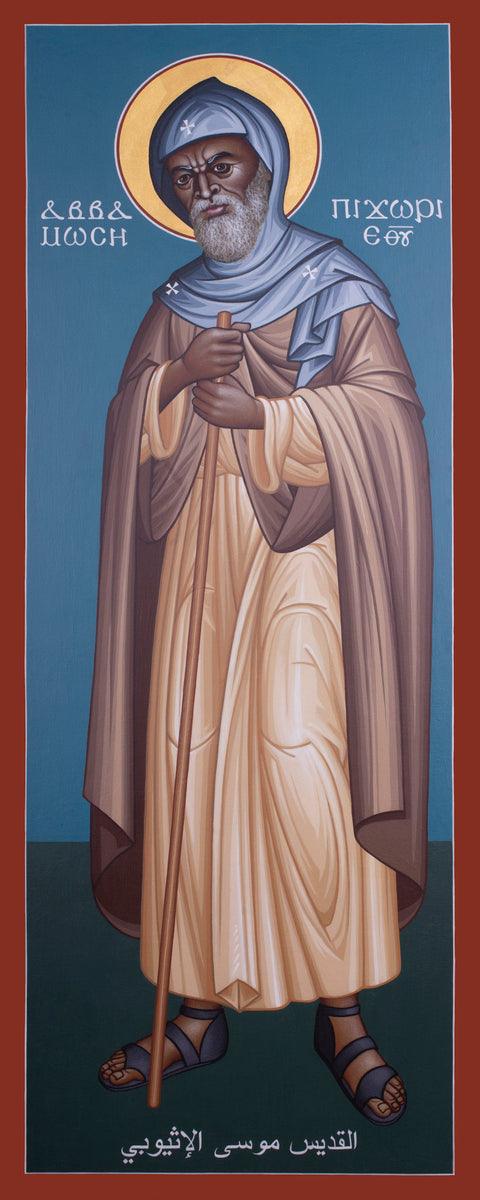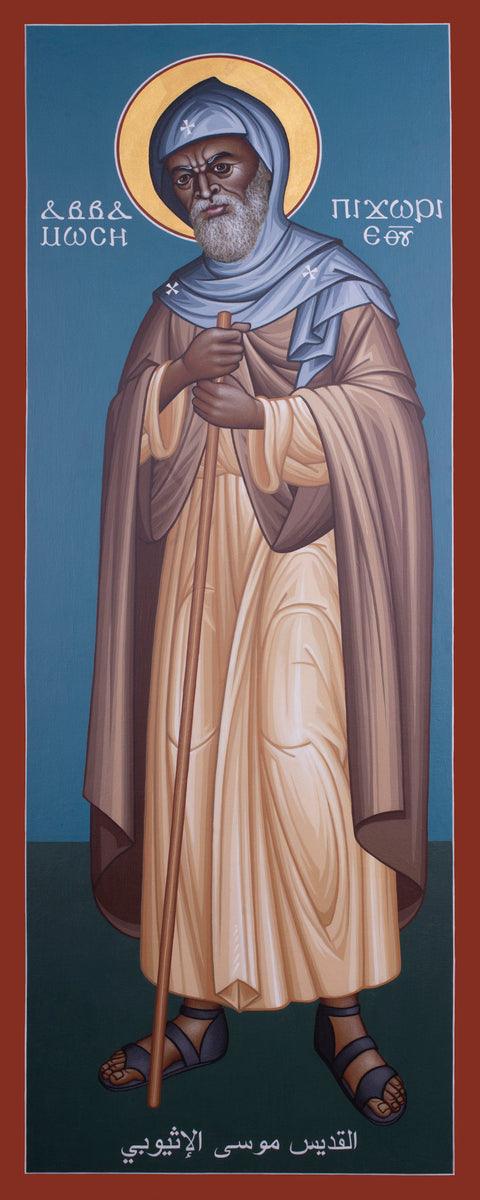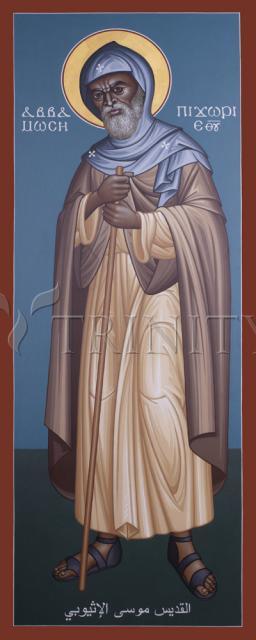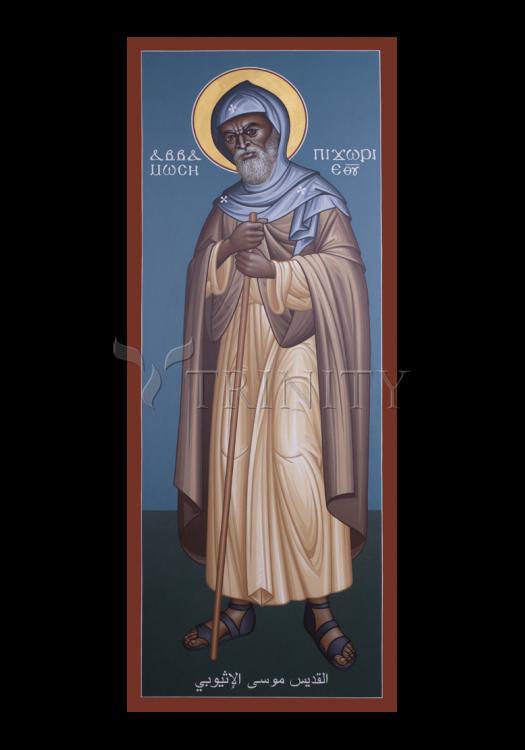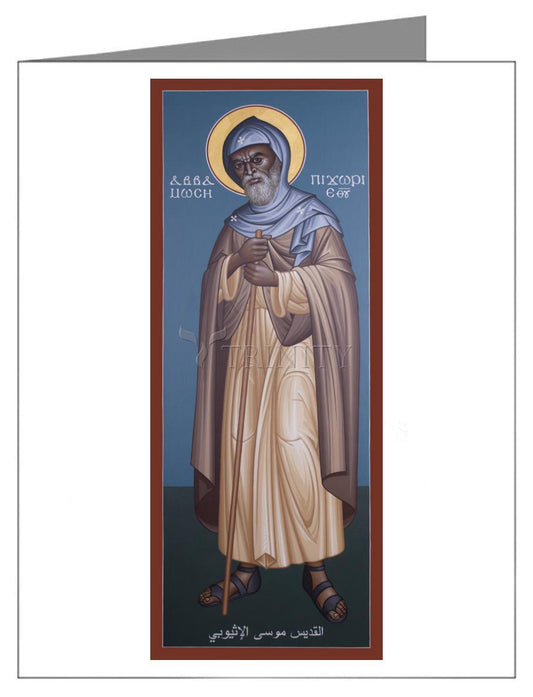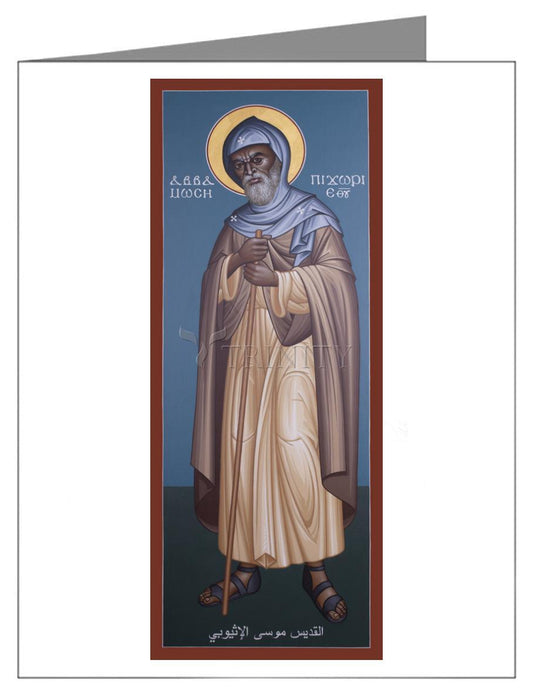Saint Moses the Black lived during the fourth century in Egypt. He was an Ethiopian, and he was black of skin and therefore called "Murin" (meaning "like an Ethiopian"). In his youth he was the slave of an important man, but after he committed a murder, his master banished him, and he joined a band of robbers.
Because of his bad character and great physical strength they chose him as their leader. Moses and his band of brigands did many evil deeds, both murders and robberies. People were afraid at the mere mention of his name.
Moses the brigand spent several years leading a sinful life, but through the great mercy of God he repented, left his band of robbers and went to one of the desert monasteries. Here he wept for a long time, begging to be admitted as one of the brethren. The monks were not convinced of the sincerity of his repentance, but the former robber would not be driven away nor silenced. He continued to ask that they accept him.
St Moses was completely obedient to the igumen and the brethren, and he poured forth many tears of sorrow for his sinful life. After a certain while St Moses withdrew to a solitary cell, where he spent the time in prayer and the strictest fasting in a very austere lifestyle.
Moses became the spiritual leader of a colony of hermits in the desert near Skete. At some time, he had been ordained a priest -- an uncommon phenomenon at that period for desert monks. When he was 75 years old, about the year 407, word came that a group of renegades planned to attack the colony. The brothers wished to defend themselves, but Moses forbade such action. He told them to retreat rather than take up the sword. He and six others stayed on to greet the invaders with open arms, but all were martyred by the bandits. A modern interpretation honors St. Moses the Black as an apostle of nonviolence.



